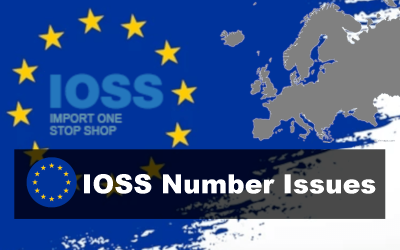IS, IR, simplified réel, normal réel Tax Regimes
There are a number of taxes in France relating to corporate and income tax and VAT regimes. In this article we break down each type of tax in France and how to operate under these regimes. When you are running your own company in France, you may be taxed under the personal income tax system (Impôts sur le Revenu, IR) or French corporate tax system(Impôts sur les Societiés, IS). Sole traders and freelance workers who are operating under the new micro-entreprise regime will pay tax and social charges based on their turnover under the (micro-fiscal simplifié system)
Corporate tax (IS) is an annual tax on the profits generated in France by companies and other organisations. The tax rate is gradually being lowered to 25% by 2022 as per the Finance Act of 2018. Some companies not subject to corporate income tax (mainly sole proprietorships or professional non-trading companies) are liable to personal income tax (IR).
Corporate tax (IS)
There are a number of different French corporate tax regimes in France depending on the type of business you are running.
- Commercial, industrial, or manual/trades/crafts businesses fall under the Bénéfices Industriels et Commerciaux (BIC) system.
- Professional businesses fall under the Bénéfices non Commerciaux (BNC) system.
- Agricultural businesses use the Bénéfices Agricole (BA) system.
There are different divisions within the BIC and BNC which handle companies based on turnover. Your turnover determines if you will pay tax under a simplified corporate tax system (régime du réel simplifié) or the régime du réel normal system
| Department | Turnover p.a | Regime |
| BIC | up to €238,000 | Simplified |
| BIC | over €238,000 | Reel |
| BNC | up to €70,000 | Simplified |
| BNC | over €70,000 | Reel |
With these regimes, you must provide information on income, deduct expenditures and apply French business tax to the company’s net profit. You can carry losses over up to a maximum of six years.
Corporate Income Tax (CIT)
| Fiscal year beginning 01/01/21 | Fiscal year beginning 01/01/22 | |
| Company turnover less than €250m | 26.5% | 25% |
| Company turnover more than €250m | 27% | 25% |
For companies with a turnover of less than €10 million, profits of less than €38,120 are taxed at a rate of 15%.
In some cases, the corporate tax (IS) is increased:
- Social contribution: 3.3% of the corporate tax due for companies with a turnover of at least €7.63 million and a corporate tax liability of more than €763,000;
| Reduced rate / net industrial property result | 10% | Reduced rate applicable to net profits from the sale, concession of license, or sub-concession of certain industrial property rights. |
| Capital gains on the sale of equity investments | 0% |
Are excluded from the scope of the 0%-rate:
The benefit of the 0 rate is subject to the reintegration of a share of costs and expenses (in the result taxable at the normal rate of corporation tax) equal to 12% of the gross amount of capital gains. |
Income Tax (IR)
If you are a resident of France then you are liable to French income tax on all of your French or foreign income regardless of your nationality.
Personal income tax is assessed on the basis of different income received by a tax household. The actual tax rate depends on a scale between 0-45%
Non-residents usually pay tax on their France-sourced income at a minimum French tax rate of 20% for French-sourced income up to €27,519 and 30% for income above this threshold.
Residents of France pay taxes on worldwide income which includes any earnings from investments, employment, bank interest, dividends, pensions and also property.
Personal income tax rates for residents are;
| Income | Tax Rate |
| upto €10,084 | 0% |
| €10,085–€25,710 | 11% |
| €25,711–€73,516 | 30% |
| €73,517–€158,222 | 41% |
| €158,223+ | 45% |
Simplified réel tax regime
The simplified regime also known as the micro regime is generally for companies and people who do not have a high expenditure and comes with less paperwork. There are no profit and loss accounts to prepare and you would simply declare your turnover were the tax authorities would apply a fixed allowance for expenditure before calculating your income tax and social charges liabilities.
Company turnover ranges from €85 800 to €818 000 for sales activities and €34 400 to €247 000 for service activities. Business that are covered by this scheme must pay two instalments per year based on their VAT due for the previous year. usually 55% advance in July and a 40% advance in December but the tax payer is exempted if the amount of VAT due for the previous financial year is less than €1000. When the annual accounts are filed the total amount of VAT paid is deducted from the total VAT amount due.
Normal réel tax regime
The normal regime takes into account your gross turnover and deduction of true costs to create a true profit. Social charges are then calculated on the true profit amount. Businesses whose turnover exceed €818 000 for sales activities or €247 000 for service providers are automatically subject to this regime and taxpayers must declare and pay VAT monthly.
Filing of the annual accounts for partnerships and limited companies are mandatory. For a limited company however the social charges are payable on the remuneration taken by the director(s) and most of these can be deducted from the company profit before the corporation tax is calculated. There is always a minimum contribution to healthcare even if the business is running at a loss.




